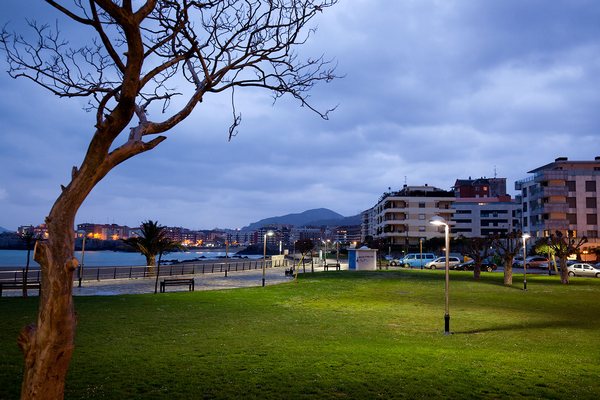As year-round tourist hot-spots, many European seaside towns find that the influx of tourists brings its own unique set of challenges. In order to address safety concerns and minimise the impact on residents, city councils look to make infrastructure investments that improve both the energy efficiency and local ambience of the area.
One specific example is that improving lighting along beaches and seafronts can increase business for local hoteliers and shopkeepers, while also reducing the potential for fights and vandalism that often comes with increased tourism.
With a booming market, the European tourism industry brings in over 368,000 million Euros per year. According to EU figures, four out of every nine overnight stays in hotels are spent in seaside towns.
 |
|
LED streetlights close to the seashore. (GE/LEDinside) |
But this industry does not maintain itself, and it is essential that these tourist towns provide high quality services, act to preserve their surrounding environments and strive to reduce energy expenditure wherever possible.
The question is one of balance. Seafront promenades and beaches need to enjoy urban standard lighting levels that support tourists’ feelings of safety and comfort, without impacting too much on the environment and local ecosystems. In other words, energy use must be reduced but not at the cost of safety and services. Rather the solution is to find sustainable, efficient light sources, such as LED, that improve comfort and but require less energy.
In fact, LED is possibly the ideal technology for seafront and beach lighting. A number of real-life applications have demonstrated LED’s clear advantages in this environment:
1. Safety:
LED lighting can reduce crime levels. Last year, in Majorca there were over 100 arrests for theft along the seafront in Magalluf alone. By creating an area that is lit almost to the water’s edge, without interfering with local marine life, LED lighting can allow full use of local attractions for longer periods, even including night swimming.
2. Light Nuisances:
LED allows tighter control over the direction of the light. This is essential to protect local ecosystems, which are of course, often part of the local tourist attraction. More and more European countries are developing laws that limit outdoor illumination, so it does not interfere with the skyline or marine life. In the Canary Islands, for example, the government enforces strict legislation to prevent interference with local points of interest, such as the Northern European Observatory.
3. Comfort For Pedestrians:
The tourism industry reflects European demographics and with an aging population, target markets such as senior citizens bring specific needs which lighting projects must meet. Seniors are a particularly vulnerable group for crime and accidental injury, and LEDs can improve accessibility and boost safety, while the excellent colour reproduction offers better solutions for visitors with visual impairments.
4. Energy Costs:
In terms of sustainability and overall expenditure, the cost of energy may in fact be the most relevant issue when implementing a seaside lighting project. The tourism sector has specialized initiatives designed to monitor its sustainability policies, such as the EU Eco-label and the Travelife Certification System, which LED lighting is particularly suited to.
Given that climate change is a viable threat to the tourism sector (after all, changes to the local environment are essentially changes to local attractions) the future of the industry depends on eco-friendly options.





 CN
TW
EN
CN
TW
EN






